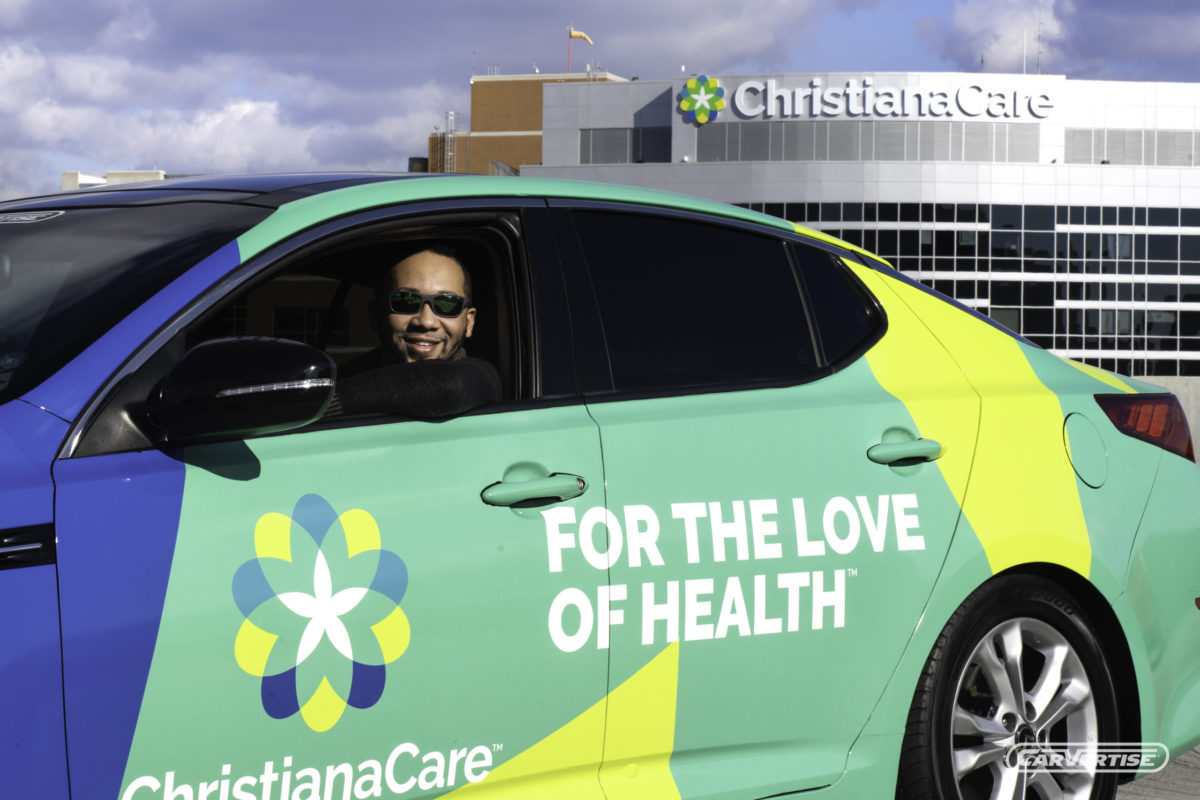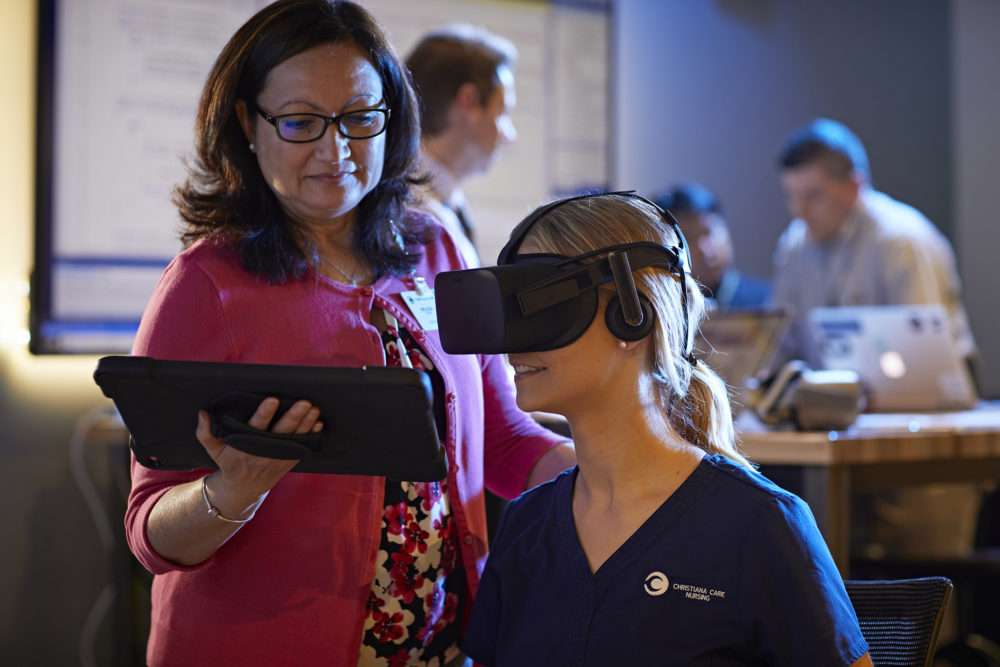By now, you probably know that virtual reality is more than a cool toy or marketing tool. Entrepreneurs in Delaware are using it to do things like create tools for first responders and design accessible customer experiences.
The healthcare industry has been using VR as a tool for helping people longer than most. It’s been found to be useful as distraction therapy — making high-stress treatments like chemotherapy more comfortable, for example — and valuable as as training tool.
On Nov. 8, healthcare professionals from all over the region gathered at a Virtual Reality Symposium in the John H. Ammon Medical Education Center at Christiana Hospital to see different ways VR is being used as a medical technology, including as a training tool for opioid overdose intervention.
While most of the VR training highlighted at the symposium was geared toward healthcare professionals and students, the opioid overdose intervention training is meant for non-medically trained people.
“It’s being used to train people to be able to provide Narcan [naloxone], which is a reversal for an opioid,” said Dr. Susan Coffey-Zern, the director of the Virtual Education and Simulation Training Center at ChristianaCare. “So if somebody were to be out in the city and saw somebody they thought went into respiratory arrest, this is the opportunity to train laypeople in a really easy way” to respond to that person.
The VR training video that was shared at the symposium put viewers using a cardboard headset in the middle of a situation where a person collapses in a cafe. You watch as a woman comes to her aid, ultimately giving the victim a dose of naloxone she’d been carrying in her bag as they wait for an ambulance to arrive. (The woman’s preparedness may seem unrealistically convenient out of context, but this training video is meant to go along with distributing naloxone, a nasal spray, to citizens so they will be prepared for situations like this.)
This kind of immersive education has been found to be effective at reducing anxiety when the person is faced with the situation in real life, said John DiGiovanni, innovation architect at ChristianaCare, who is working on a project that puts newly diagnosed cancer patients into treatment scenarios using VR before they go in for the first time so they’ll know what to expect.
The project is a clinical study funded by the $50,000 Magnet Award from The American Nurses Credentialing Center won by ChristianaCare in 2018 for the positive outcomes of cancer patients using VR distraction therapy.
“The early data is showing that it is reducing anxiety,” said DiGiovanni. “This is actual data that they’re collecting around that clinical study. Immersive education is proving to be valuable to patients.”
The next big thing researchers are exploring in VR therapy is using the technology as pain reduction therapy — something that could potentially reduce patient exposure to opioids.
Want more information on where you can get naloxone training? Click here.
Join the conversation!
Find news, events, jobs and people who share your interests on Technical.ly's open community Slack

Meet the artist behind the robots you’re seeing take over Wilmington

This Week in Jobs: Get out there with 22 new job opportunities available to you!

'Be bold': This digital innovation and business strategist urges fellow women leaders to be their authentic selves


